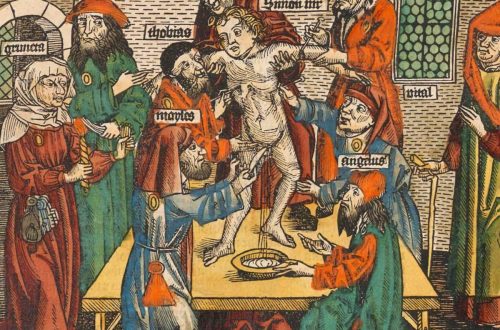Guest post by JS Rafaeli
Dear Roger Waters,
The other day you posted an open letter to Neil Young and Scarlett Johansson on your Facebook page. This letter was primarily made up of a series of questions regarding the Palestinian employees of SodaStream’s factory in Ma’ale Adumim, addressed to Ms Johansson.
I see that neither Neil Young or Scarlett Johansson has offered you any answers to these questions, so I thought I might have a go.
There are several hundred Palestinians employed at this particular factory, I don’t know each of their particular circumstances, so I have taken my lead from the people interviewed in this recent article, and this video.
Enjoy the answers Roger, I hope they shed some light:
Do they have the right to vote?
Since 1994 Palestinians have voted in Palestinian elections – presidential, parliamentary and municipal. Following disputed elections and violent power struggles in 2005/6 the Palestinian polity has been split: Gaza ruled by Hamas, and the West Bank dominated by Fatah. All the Palestinian workers at SodaStream are from the West Bank.
The last local elections in the West Bank were held in October 2012. The internecine Hamas/Fatah rivalry prevented both local elections in Gaza, as well as new presidential or parliamentary elections for Palestine as a whole, but this has nothing to do with SodaStream.
Do they have access to the roads?
In the article above several Palestinian SodaStream workers are interviewed. Four of them identify where they live: Achmed Nasser and Nabeel Besharat, from Ramallah, Ptiha Abu-Selat from Jericho, and Mohammed Yousef from Jaba.
Ramallah and Jericho are both in Area A of the West Bank, as defined by the Oslo Accords. This area is under full control of the Palestinian Authority, thus they should access to the roads there. There are several towns called Jaba in the West Bank; it is impossible to know which one Mohammed Youssef is referring to, and thus what his road access is like.
In Area C of the West Bank some Israeli-built roads are reserved for the use of Israelis (Arabs as well as Jews) travelling between communities beyond the Green Line, often known as ‘settlements’. This leads to frequent chatter in the West about ‘Jewish only’ roads. This is nonsense. How would this be enforced? Would traffic cops stop drivers and ask them to recite the Torah from memory?
Can they travel to their work place without waiting for hours to pass through the occupying forces control barriers?
SodaStream provides a bus service to take workers to and from the factory – as seen in this video. They pass through one checkpoint. It doesn’t appear too onerous, nor have any complaints been registered around this issue.
Do they have clean drinking water?
Access to water and other resources is of course a contested issue in the Israeli-Palestinian conflict, and will be a factor in any peace deal. But, to actually answer your question, the latest figures (from 2011) indicate that 89.4% of homes in the West Bank were connected to the water network, and 70.9% of respondents in a poll rated the water quality as ‘good’.
The West Bank’s agricultural sector, though under pressure from Israeli occupation and mismanagement, is functioning. People are not dying of thirst or water-born diseases in Palestine as they are in so many other places in the MENA.
Do they have sanitation?
The figures above apply to water for sanitation as well as drinking. One suspects that the employees of SodaStream, earning between three and five times the local average are able to afford a better standard of sanitation than their neighbours.
Do they have citizenship?
Interesting question. Until 1988 residents of the West Bank were citizens of Jordan. Jordan then stripped Palestinians of citizenship based on ethnocentric lines. Israel has not done this to its own Arab citizens.
The Palestinian Authority has been issuing its own passports since 1995. The United States recognises these as travel documents, but not as conferring citizenship, as they are not issued by a state the US recognises. However, in 2007 the Japanese government stated, “Given that the Palestinian Authority has improved itself to almost a full-fledged state and issues its own passports, we have decided to accept the Palestinian nationality”.
So the answer is yes and no. The West Bankers who work at SodaStream do however have something considerably closer to citizenship than Palestinians in Lebanon, who are denied both citizenship and residency, despite many families having been there for several generations.
Do they have the right not to have the standard issue kicking in their door in the middle of the night and taking their children away?
According B’tselem, as of the ‘end of December 2013, 4,768 Palestinian security detainees and prisoners were held in Israeli prisons’. This number includes petty criminals, those who have maimed and murdered Israeli civilians, and very likely some poor souls who got scooped up by a crude judicial machine.
Law enforcement in the Occupied Territories is rough. Israel and the Palestinians are in a state of conflict; this does not engender light touch policing. But even its critics say that Israel does maintain the separation of its Legislative and Judicial branches. One hopes that the innocent will be set free – but this has little to do with SodaStream. One would expect the company to support any of its employees who were wrongly incarcerated.
Do they have the right to appeal against arbitrary and indefinite imprisonment?
As far as I am aware there are no categories of prisoner in Israel without the right to appeal.
In cases of Administrative Detention the prisoner may be held for six months without charge. This can be appealed in the Military Court, the District Court and the Supreme Court.
I am not aware of any SodaStream employees having been put into Administrative Detention.
Do they have the right to re-occupy the property and homes they owned before 1948?
Do you actually know whether the workers at SodaStream vacated homes or properties during the 1948 war?
If they did, then the answer is no, at this point they do not have the right to return to those homes (assuming said homes are still standing). However the so-called ‘Right of Return’ is a questionable ‘right’ at best. At the end of the Second World War millions of Germans were forcibly displaced from homes their families had occupied for centuries in Eastern Europe. The same happened to two million Greeks and Turks in the early 1920s, millions of Indians and Pakistanis during the Partition in 1948, and roughly 750,000 Jews from the Arab and Muslim world at roughly the same time as the Palestinian Nakba. Most of these Jewish-Arab refugees ended up in Israel, where they became citizens. None of these groups is said to possess a ‘Right of Return’, none of them have ‘the right to re-occupy the property and homes they owned before’.
The Palestinians are uniquely cursed with this notional ‘Right of Return’, not least because even three of four generations after the fact, the Arab states where the Palestinian refugees ended up have declined to grant them citizenship or equal rights.
Do they have the right to an ordinary, decent human family life?
This is too nebulous a question. I’m not sure anyone can answer it, least of all Scarlett Johansson. From the article and video above, one might draw the conclusion that, inasmuch as the workers at SodaStream have this right, their positions at SodaStream help them to more fully exercise it.
Do they have the right to self-determination?
The workers at SodaStream are all free to leave the factory and find other employment. Thus far it seems none have chosen to do so. Perhaps you should ask yourself why?
Do they have the right to continue to develop a cultural life that is ancient and profound?
Again, a nebulous question – there is a room set aside for use as a mosque in the Sodastream factory (it’s in the video link). Prayer times are not deducted from break times. One of the more touching sections of that video is the part about the workers seeing each other pray, and families starting to celebrate each other’s holidays. In the Middle Eat this is new, and it is very profound.
So Roger, I hope that answers some of the questions you posed to Scarlett Johansson.
Part of me does suspect that you weren’t actually looking for answers to these questions– that you posed them rhetorically. What I would say to you, Roger, is that this part of the world doesn’t need any more rhetoric. Shrill, canting rhetoric is what got the Israelis and the Palestinians into the parlous state in which they find themselves. What is needed is calm, sober analysis, hard-headed realism, a sense of perspective and some good old-fashioned deal making by the politicians. You do no one any favors by adding to the noise, least of all the Palestinians who have chosen to work at SodaStream.
One last thing, Roger. At the end of your open letter, you tell Scarlett Johansson she is ‘cute’ but hasn’t been paying attention. This sails pretty close to what might be called ‘patronizing sexist bullshit’. Johansson is a grown woman who considered the facts and made her choices. You would do well to consider that. If you want to talk politics leave out the 1970s stand-up comic routine.
Cheerio Roger – think on it.


